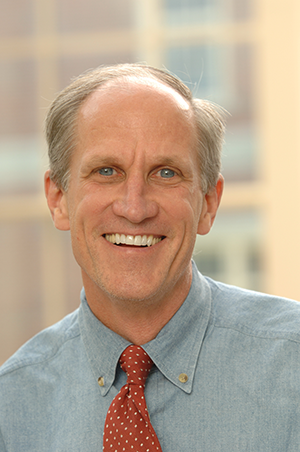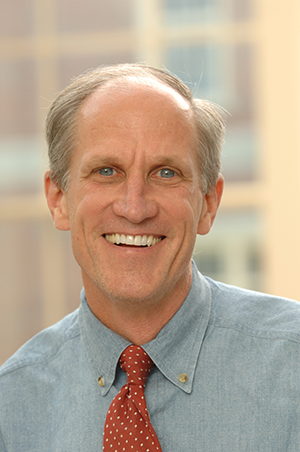Making a difference


In only his second year as a medical resident, Richard (Dick) Christensen founded a mental health clinic for the homeless and uninsured. His commitment to the well-being of some of the most down-and-out members of society remained true until the end.
Christensen, 60, died Thanksgiving Day during a morning run after being struck by a hit-and-run driver in Zambia. Christensen was there as part of a Thanksgiving tradition he shared with his wife, celebrating the holiday and their wedding anniversary by volunteering with Habitat for Humanity.
Christensen is a former associate dean for student affairs at the FSU College of Medicine, a position he left in 2008 to return to doing what he believed was his calling – providing full-time mental health support for the homeless.
“He epitomized the servant leader and humanitarian,” said Alma Littles, senior associate dean for medical education and academic affairs. “No matter what role he was in, he gave voice to those who had little voice of their own.”
For Christensen, who started out to become a Jesuit priest before pursuing a career in medicine, it often meant seeking that voice.
At the Sulzbacher Center for Jacksonville’s homeless, Christensen developed a ‘street psychiatry’ practice, leading “hope teams” of counselors who drove around looking for patients unable to seek assistance on their own.
“It's out in the woods and under the bridges, on the beach, here, where the chronically homeless people are who won't come into shelter, and who are suffering from the most severe mental illnesses,” Sulzbacher CEO Cindy Funkhouser told the Florida Times-Union for a story about Christensen’s death.
Christensen founded the behavioral health program at the Sulzbacher Center, where he served as director of behavioral health services, overseeing two psychiatry clinics and also teaching medical students and medical residents.
Funkhouser described how Christensen spent weeks and months developing a rapport with his homeless patients and how his efforts helped many find housing and reclaim their lives. She recalled once watching, with tears welling, how he got down on the sidewalk to speak to one of his homeless patients.
“The fall down the ladder is so much faster than the climb back up,” Christensen told the Times-Union for a story published last year. “It doesn’t take much for a person with serious mental illness to wind up on the streets.”
Robert Watson, professor of clinical sciences at the College of Medicine, also was a friend and colleague of Christensen’s at the UF College of Medicine. Watson recalled how Christensen was honored with the medical school’s top teaching honor – the Hippocratic Award.
“He was the only faculty member from UF Jacksonville to receive it,” Watson said. “That means that despite relatively few students in a graduating class being able to spend time with him (because he was in Jacksonville, not Gainesville), those few were so impacted that they convinced their class to honor Dr. Christensen.
“I have never know anyone who was as truly altruistic as Dick Christensen.”
“He was the heart and soul of psychiatry in the city,” said Steven Cuffe, chair of the psychiatry department at UF Health in Jacksonville, where Christensen taught.
Christensen’s outlook and sense of humor made a lasting impression at the FSU College of Medicine, as well.
“We were fortunate to have him as our dean of students, even for a brief period of time,” Littles said. “I’m convinced that those students who had the privilege of meeting him are better physicians because of those encounters.”

